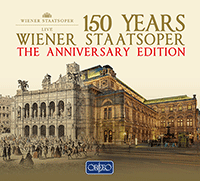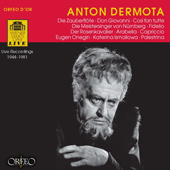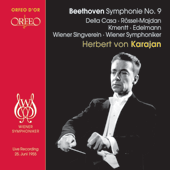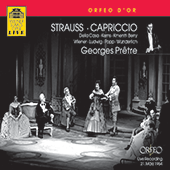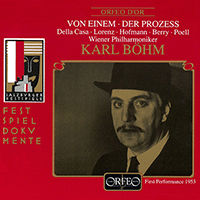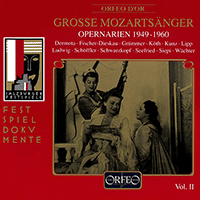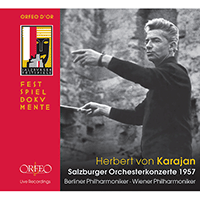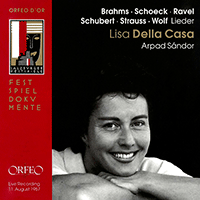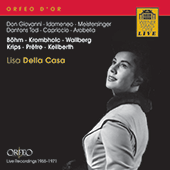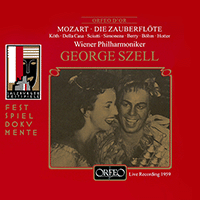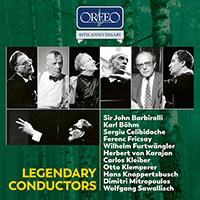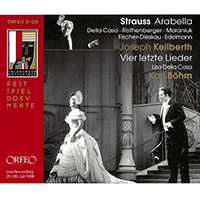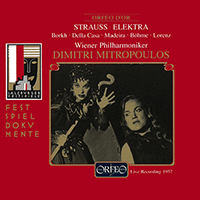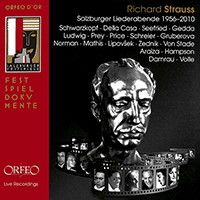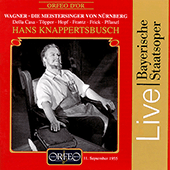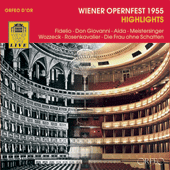Lisa Della Casa
Lisa della Casa was born into a family of Italian, Swiss and German extraction; her father was a doctor. She began to study singing when she was fifteen years old at the Zürich Conservatory with Margarete Haeser, her only vocal teacher, and made her operatic debut in the title role of Madama Butterfly at the Municipal Theatre of Solothurn-Biel in 1941. Two years later, already active as an actress and a concert singer, she joined the ensemble of the Zürich Opera House, remaining with this company until 1950. Here her roles included Mimì / La Bohème and the Queen of the Night / Die Zauberflöte, as well as Serena / Porgy and Bess and the Young Woman in the world premiere of Willy Burkhard’s Die schwarze Spinne.
In 1946 della Casa sang Zdenka in Richard Strauss’s opera Arabella opposite the soprano Maria Cebotari in the title role. Impressed, Cebotari recommended her to the Salzburg Festival, where she repeated the same role in 1947, this time opposite Maria Reining and Hans Hotter. After hearing her performance, Richard Strauss himself prophetically commented, ‘That girl will be the Arabella someday!’ In the same year della Casa married the Yugoslav author Dragan Debeljevic and made her debut at the Vienna State Opera as Gilda / Rigoletto. She quickly became a member of this distinguished company, where her early roles included Sophie / Der Rosenkavalier and Nedda / Pagliacci, as well as Mimì and Butterfly.
She appeared at La Scala, Milan for the first time in 1949 as Sophie and Marzelline / Fidelio, earning the praise and admiration of the company’s music director, Victor De Sabata. At Salzburg in 1950 della Casa sang the Countess / Capriccio and at Glyndebourne in 1951 the Countess / Le nozze di Figaro. In this year also she appeared in the title role of Arabella for the first time (with the Bavarian State Opera in Munich), repeating the role with great success when this company visited Covent Garden in 1953.
During the previous year, 1952, she had received the honorary title of Kammersängerin of Austria, and had sung Eva / Die Meistersinger von Nürnberg at the Bayreuth Festival. She chose however not to return there, citing her dislike of operatic intrigue.
Conversely she returned regularly to the Salzburg Festival, where her roles included Octavian / Der Rosenkavalier (1953), Ariadne / Ariadne auf Naxos (1954–1955), Donna Elvira / Don Giovanni (1956), Chrysothemis / Elektra (1957), Pamina / Die Zauberflöte (1959) and the Countess / Figaro (1960). Having sung the Marschallin for the first time in 1955 on the occasion of the reopening of the Vienna State Opera, she reprised the role in 1960 for the opening of the large Festspielhaus at Salzburg (she had thus sung all three major female roles in this opera).
Between 1953 and 1968 della Casa sang frequently at the Metropolitan Opera in New York, for example as Mozart’s Countess and Donna Elvira, Eva, Butterfly and Arabella, as well as Elsa / Lohengrin and Saffi / Der Zigeunerbaron (given in English).
During the 1960s della Casa extended her repertoire to parts such as the title roles in Strauss’s Salome, which she sang in Munich in 1961, and Puccini’s Tosca, before returning to her signature roles in Mozart and Strauss operas. She retained her flexibility and professionalism throughout her career: when her former colleague in Vienna, Elisabeth Schwarzkopf, sang the Marschallin for the first time in New York in 1964, della Casa was happy to return to the role of Octavian. As the 1960s drew to a close her voice began to decline and her appearances became fewer. After a performance of Arabella at Salzburg in 1974 she unexpectedly announced her retirement, settling with her husband in a magnificent castle in Switzerland.
Lisa della Casa possessed all the attributes required to excel in her chosen repertoire. Possessing great personal beauty, she looked superb on the operatic stage, which she commanded naturally and with great charisma. Her voice was ideally suited to Strauss’s rhapsodic vocal writing, which she was able to realise absolutely without any hint of effort. In the words of the distinguished critic, John Steane: ‘Della Casa remains one of the best of all sopranos in Richard Strauss. Her voice has that touch of spring and silver that Strauss loved and wrote for; her tone will float and soar.’
© Naxos Rights International Ltd. — David Patmore (A–Z of Singers, Naxos 8.558097-100).








